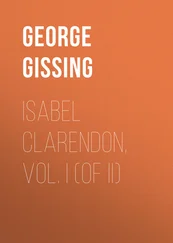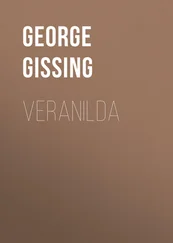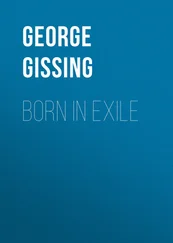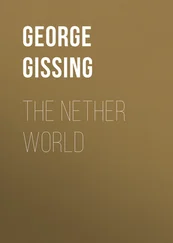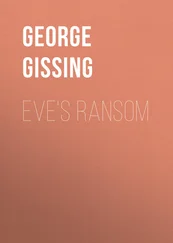George Gissing - New Grub Street
Здесь есть возможность читать онлайн «George Gissing - New Grub Street» — ознакомительный отрывок электронной книги совершенно бесплатно, а после прочтения отрывка купить полную версию. В некоторых случаях можно слушать аудио, скачать через торрент в формате fb2 и присутствует краткое содержание. Жанр: unrecognised, на английском языке. Описание произведения, (предисловие) а так же отзывы посетителей доступны на портале библиотеки ЛибКат.
- Название:New Grub Street
- Автор:
- Жанр:
- Год:неизвестен
- ISBN:нет данных
- Рейтинг книги:3 / 5. Голосов: 1
-
Избранное:Добавить в избранное
- Отзывы:
-
Ваша оценка:
- 60
- 1
- 2
- 3
- 4
- 5
New Grub Street: краткое содержание, описание и аннотация
Предлагаем к чтению аннотацию, описание, краткое содержание или предисловие (зависит от того, что написал сам автор книги «New Grub Street»). Если вы не нашли необходимую информацию о книге — напишите в комментариях, мы постараемся отыскать её.
New Grub Street — читать онлайн ознакомительный отрывок
Ниже представлен текст книги, разбитый по страницам. Система сохранения места последней прочитанной страницы, позволяет с удобством читать онлайн бесплатно книгу «New Grub Street», без необходимости каждый раз заново искать на чём Вы остановились. Поставьте закладку, и сможете в любой момент перейти на страницу, на которой закончили чтение.
Интервал:
Закладка:
In the afternoon, Miss Harrow and Marian came at the expected hour. Jasper purposely kept out of the way until he was summoned to the tea-table.
The Milvain girls were so far from effusive, even towards old acquaintances, that even the people who knew them best spoke of them as rather cold and perhaps a trifle condescending; there were people in Wattleborough who declared their airs of superiority ridiculous and insufferable. The truth was that nature had endowed them with a larger share of brains than was common in their circle, and had added that touch of pride which harmonised so ill with the restrictions of poverty. Their life had a tone of melancholy, the painful reserve which characterises a certain clearly defined class in the present day. Had they been born twenty years earlier, the children of that veterinary surgeon would have grown up to a very different, and in all probability a much happier, existence, for their education would have been limited to the strictly needful, and—certainly in the case of the girls—nothing would have encouraged them to look beyond the simple life possible to a poor man’s offspring. But whilst Maud and Dora were still with their homely schoolmistress, Wattleborough saw fit to establish a Girls’ High School, and the moderateness of the fees enabled these sisters to receive an intellectual training wholly incompatible with the material conditions of their life. To the relatively poor (who are so much worse off than the poor absolutely) education is in most cases a mocking cruelty. The burden of their brother’s support made it very difficult for Maud and Dora even to dress as became their intellectual station; amusements, holidays, the purchase of such simple luxuries as were all but indispensable to them, could not be thought of. It resulted that they held apart from the society which would have welcomed them, for they could not bear to receive without offering in turn. The necessity of giving lessons galled them; they felt—and with every reason—that it made their position ambiguous. So that, though they could not help knowing many people, they had no intimates; they encouraged no one to visit them, and visited other houses as little as might be.
In Marian Yule they divined a sympathetic nature. She was unlike any girl with whom they had hitherto associated, and it was the impulse of both to receive her with unusual friendliness. The habit of reticence could not be at once overcome, and Marian’s own timidity was an obstacle in the way of free intercourse, but Jasper’s conversation at tea helped to smooth the course of things.
‘I wish you lived anywhere near us,’ Dora said to their visitor, as the three girls walked in the garden afterwards, and Maud echoed the wish.
‘It would be very nice,’ was Marian’s reply. ‘I have no friends of my own age in London.’
‘None?’
‘Not one!’
She was about to add something, but in the end kept silence.
‘You seem to get along with Miss Yule pretty well, after all,’ said Jasper, when the family were alone again.
‘Did you anticipate anything else?’ Maud asked.
‘It seemed doubtful, up at Yule’s house. Well, get her to come here again before I go. But it’s a pity she doesn’t play the piano,’ he added, musingly.
For two days nothing was seen of the Yules. Jasper went each afternoon to the stream in the valley, but did not again meet Marian. In the meanwhile he was growing restless. A fortnight always exhausted his capacity for enjoying the companionship of his mother and sisters, and this time he seemed anxious to get to the end of his holiday. For all that, there was no continuance of the domestic bickering which had begun. Whatever the reason, Maud behaved with unusual mildness to her brother, and Jasper in turn was gently disposed to both the girls.
On the morning of the third day—it was Saturday—he kept silence through breakfast, and just as all were about to rise from the table, he made a sudden announcement:
‘I shall go to London this afternoon.’
‘This afternoon?’ all exclaimed. ‘But Monday is your day.’
‘No, I shall go this afternoon, by the 2.45.’
And he left the room. Mrs Milvain and the girls exchanged looks.
‘I suppose he thinks the Sunday will be too wearisome,’ said the mother.
‘Perhaps so,’ Maud agreed, carelessly.
Half an hour later, just as Dora was ready to leave the house for her engagements in Wattleborough, her brother came into the hall and took his hat, saying:
‘I’ll walk a little way with you, if you don’t mind.’
When they were in the road, he asked her in an offhand manner:
‘Do you think I ought to say good-bye to the Yules? Or won’t it signify?’
‘I should have thought you would wish to.’
‘I don’t care about it. And, you see, there’s been no hint of a wish on their part that I should see them in London. No, I’ll just leave you to say good-bye for me.’
‘But they expect to see us to-day or to-morrow. You told them you were not going till Monday, and you don’t know but Mr Yule might mean to say something yet.’
‘Well, I had rather he didn’t,’ replied Jasper, with a laugh.
‘Oh, indeed?’
‘I don’t mind telling you,’ he laughed again. ‘I’m afraid of that girl. No, it won’t do! You understand that I’m a practical man, and I shall keep clear of dangers. These days of holiday idleness put all sorts of nonsense into one’s head.’
Dora kept her eyes down, and smiled ambiguously.
‘You must act as you think fit,’ she remarked at length.
‘Exactly. Now I’ll turn back. You’ll be with us at dinner?’
They parted. But Jasper did not keep to the straight way home. First of all, he loitered to watch a reaping-machine at work; then he turned into a lane which led up the hill on which was John Yule’s house. Even if he had purposed making a farewell call, it was still far too early; all he wanted to do was to pass an hour of the morning, which threatened to lie heavy on his hands. So he rambled on, and went past the house, and took the field-path which would lead him circuitously home again.
His mother desired to speak to him. She was in the dining-room; in the parlour Maud was practising music.
‘I think I ought to tell you of something I did yesterday, Jasper,’ Mrs Milvain began. ‘You see, my dear, we have been rather straitened lately, and my health, you know, grows so uncertain, and, all things considered, I have been feeling very anxious about the girls. So I wrote to your uncle William, and told him that I must positively have that money. I must think of my own children before his.’
The matter referred to was this. The deceased Mr Milvain had a brother who was a struggling shopkeeper in a Midland town. Some ten years ago, William Milvain, on the point of bankruptcy, had borrowed a hundred and seventy pounds from his brother in Wattleborough, and this debt was still unpaid; for on the death of Jasper’s father repayment of the loan was impossible for William, and since then it had seemed hopeless that the sum would ever be recovered. The poor shopkeeper had a large family, and Mrs Milvain, notwithstanding her own position, had never felt able to press him; her relative, however, often spoke of the business, and declared his intention of paying whenever he could.
‘You can’t recover by law now, you know,’ said Jasper.
‘But we have a right to the money, law or no law. He must pay it.’
‘He will simply refuse—and be justified. Poverty doesn’t allow of honourable feeling, any more than of compassion. I’m sorry you wrote like that. You won’t get anything, and you might as well have enjoyed the reputation of forbearance.’
Mrs Milvain was not able to appreciate this characteristic remark. Anxiety weighed upon her, and she became irritable.
Читать дальшеИнтервал:
Закладка:
Похожие книги на «New Grub Street»
Представляем Вашему вниманию похожие книги на «New Grub Street» списком для выбора. Мы отобрали схожую по названию и смыслу литературу в надежде предоставить читателям больше вариантов отыскать новые, интересные, ещё непрочитанные произведения.
Обсуждение, отзывы о книге «New Grub Street» и просто собственные мнения читателей. Оставьте ваши комментарии, напишите, что Вы думаете о произведении, его смысле или главных героях. Укажите что конкретно понравилось, а что нет, и почему Вы так считаете.



